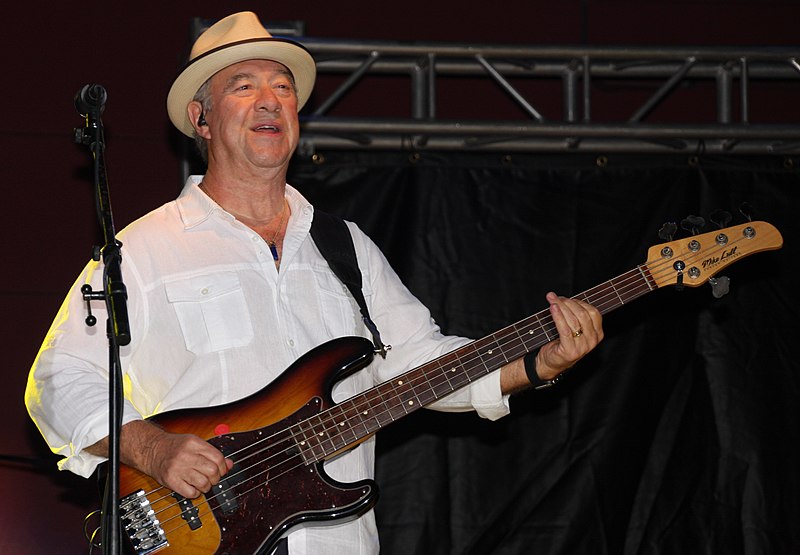 In a stunning revelation that has shocked the music world, a former member of Creedence Clearwater Revival (CCR) has come forward with an insider account detailing the true reasons
In a stunning revelation that has shocked the music world, a former member of Creedence Clearwater Revival (CCR) has come forward with an insider account detailing the true reasons
behind the band’s infamous breakup. For decades, fans and historians have speculated about the tensions that led to the dissolution of one of rock’s most successful and influential bands. Now, this new testimony sheds light on the personal and professional conflicts that tore CCR apart at the height of their fame.
The Official Narrative
Since CCR’s breakup in 1972, the prevailing narrative has been that creative differences and business disputes, particularly between frontman John Fogerty and the rest of the band, were the main causes. John Fogerty’s dominant role in writing, singing, and producing CCR’s hits, combined with his fierce control over the band’s direction, created friction with the other members—his brother Tom Fogerty, bassist Stu Cook, and drummer Doug Clifford. The tension reached a breaking point when Tom Fogerty left the band in 1971, and just a year later, CCR disbanded entirely after the release of their final album, Mardi Gras.
The New Revelation
The new account, given by drummer Doug Clifford in an exclusive interview, offers a deeper and more personal perspective on what really led to the band’s breakup. Clifford, who has largely stayed out of the spotlight since CCR’s heyday, has decided to speak out to set the record straight after years of silence.
Clifford revealed that the primary cause of the band’s dissolution was not just creative differences, but a series of deep-seated personal issues, particularly between the Fogerty brothers. According to Clifford, the relationship between John and Tom Fogerty had been strained for years, long before the band formed, due to unresolved family conflicts. These tensions only worsened as CCR became more successful, with John’s growing influence in the band exacerbating Tom’s feelings of resentment and inadequacy.
Clifford described how Tom Fogerty, who had once been the leader of their earlier band The Golliwogs, struggled with being overshadowed by his younger brother. Tom felt that his contributions were being sidelined, and his dissatisfaction grew as John assumed more control over the band’s creative process. This power struggle between the brothers created a toxic environment within the band, with Tom often feeling isolated and undervalued.
The Final Straw
According to Clifford, the final straw came during the recording of Mardi Gras, when John Fogerty made the controversial decision to have each band member contribute equally to the songwriting and singing on the album. While this move was intended to address complaints about John’s control, it backfired spectacularly. Neither Stu Cook nor Doug Clifford were experienced songwriters, and the resulting album was widely criticized as being uneven and subpar compared to CCR’s earlier work.
Clifford now admits that this experiment was a disaster, not only musically but also personally. “It was John’s way of saying, ‘If you think you can do it better, go ahead,’” Clifford said. “But it wasn’t about making a great record; it was about proving a point. It only drove us further apart.”
By the time Mardi Gras was released, the band was already on the verge of collapse. Tom Fogerty had left the previous year, and the remaining members were barely speaking to each other. The album’s lukewarm reception and the increasing strain of internal conflicts led to the inevitable decision to disband.
A Bitter Aftermath
Clifford also touched on the bitter aftermath of the breakup, which saw John Fogerty refuse to play CCR songs for many years due to legal battles with the band’s former label, Fantasy Records. Clifford and Cook continued to perform CCR’s music as Creedence Clearwater Revisited, but the rift between them and John Fogerty has remained largely unhealed.
In his interview, Clifford expressed regret over how things ended but acknowledged that the band’s breakup was probably inevitable given the circumstances. “We were young, and we didn’t know how to handle success or conflict. If we’d been able to communicate better, maybe things would have turned out differently. But we were four stubborn guys who thought we could do it all on our own.”
Looking Back
This new account provides a sobering insight into the dynamics that led to the breakup of Creedence Clearwater Revival. While their music remains timeless, the band’s story is a reminder of how personal conflicts and unresolved issues can destroy even the most successful partnerships. As fans continue to celebrate CCR’s legacy, Clifford’s revelations offer a deeper understanding of the human struggles behind the music that